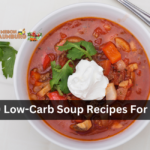Nobody enjoys being obese, and we’ve all been there. Whether it’s a frozen yogurt sundae bar or a Chinese buffet, there have been times when we are overrated and need to loosen our belts a few notches for extra relief. So, why do i get so bloated all the time?
What Is Bloating?
Individuals may experience bloating differently, but it is typically described as an uncomfortable sensation of fullness or enlargement. Localized bloating can occur when organs are distended and causing discomfort. Generalized bloating occurs when the body retains slightly more water than usual.
“When a person feels bloated, it can be difficult to diagnose because bloating is an umbrella term that can be used to describe a general feeling of tightness throughout the body,” said Hoffman. “Bloating and swelling can cause problems and cause a variety of other problems; therefore, it’s important to know what type of bloating we’re dealing with.”
The causes of bloating can be severe or, more often than not, trivial. Bloating can be inflammation, gaseous pressure, or water weight.
Overeating
Thanksgiving dinner is likely one of the first things that comes to mind when you think of swelling. The most common cause of bloating is undoubtedly overeating, but there are ways to control your portion sizes.
“Choosing a smaller serving size may assist you in eating less at a single sitting,” said Hoffman. Also, if you eat slowly, your body has an easier time digesting the food, which can inform you when you are full.
Having A Food Intolerance
Even if you have not overeaten, you may have consumed the incorrect food if you feel bloated. Specific food intolerances or sensitivities to piquant or acidic foods can make the gastrointestinal (GI) tract work harder than usual.
“Undiagnosed food intolerance can cause significant bloating,” said Hoffman. “A great deal of gas can result from the body’s efforts to break down foods for use by the body.”
If you frequently experience bloating, try keeping a food journal to record what you eat, when you observe bloating, and the severity of the discomfort.
Enjoying a high-starch or high-sodium diet
Diets high in sodium can cause fluid retention, and starch-rich foods can exacerbate gaseous flatulence.
“Everyone is a little bit distinct, and what creates bloating in one person won’t always affect another person,” Hoffman said. “It is merely a matter of learning which foods cause you distress and limiting your consumption. Starch-rich foods like beans, legumes, and bread can help you feel fuller for longer but also induce bloating.
It can treat Food-induced dyspepsia with over-the-counter medications such as antacids. These medications allow gas to pass through the body more readily, reducing bloating. Share your symptoms with your healthcare provider or pharmacist to select the appropriate over-the-counter medicines for your condition.
Consuming Packaged Foods
Packaged foods are a convenient refreshment, and it is easy to develop the habit of basing your diet on them. However, packaged meals, which are notoriously high in sodium, also tend to be high in monosodium glutamate (MSG), making you feel like you’ve consumed an entire day’s worth of sodium in a sitting.
“MSG is known to cause swelling in certain individuals, and it is a common preservative,” said Hoffman. MSG is found in buffets, Chinese cuisine, and packaged foods.
Eating Too Late
An old urban legend asserts that eating too close to nightfall can lead to weight gain, but this is not always true. Eating more energy than you expend will lead to weight gain. Still, a heavy meal before bed can make you feel as though you’ve acquired a significant amount of weight overnight.
When you’re asleep, your digestive system isn’t working as hard as it does when you’re conscious, and sleeping in a reclined position can cause discomfort during the night and in the morning, when you should feel the leanest.
Drinking Too Much Soda
Typical causes of bloating include carbonated beverages such as soda and effervescent water. The carbonation in your beloved sodas (even diet sodas) can trap gas in your stomach, leading to bloating and belching.
Try reducing your beverage consumption and switching to a healthier alternative. Black tea can boost you in the early afternoon, while cucumber or lemon-infused water can complement your meal. If you already feel distended, peppermint tea is a common remedy that can help alleviate the discomfort.
Swallowing Too Much Air
Although inhalation is the most common, there are many other methods to take in air. Standard daily practices, such as drinking from a straw, chewing gum, and eating too rapidly, add air to the digestive tract rather than the lungs.
“When you inhale too much air, you may start to feel bloated,” said Hoffman. “If it becomes a problem, stop chewing gum and drinking from straws and see if that helps alleviate your symptoms.”
Having An Undiagnosed Condition
Several conditions can induce abdominal distention. Heart and liver conditions and a lack of veins can produce abdominal or limb edema. These conditions have more pronounced and distinctive symptoms, and your doctor can help you identify them and other illnesses that can cause bloating based on these symptoms.
“Chronic diseases can cause edema and bloat in certain areas,” said Hoffman. You should share with your primary care physician if you have had any of these conditions or have questions.
Other gastrointestinal disorders can also lead to bloating and gastric disorders. Bloating can be caused by colitis with ulcers, Crohn’s disease, and bowel dysfunction. Acid reflux and the drugs used to treat it can cause bloating in the abdomen and a sensation of gas buildup, leading to belching.
Taking Certain Medications
Other medications, in addition to those used to treat acid reflux, can also induce bloating. Drugs such as stool softeners can cause flatulence and bloating, and birth control hormones, whether in pill, patch, or implant form, can cause swelling and heaviness in women.
Aspirin, antacids, diarrhea medications, narcotic pain medications, and fiber or iron supplements can also induce bloating and other gastrointestinal symptoms. Hoffman advised, “If you believe your medication is causing bloating, contact your health care provider to determine if you need to change your regimen, but never stop taking prescribed medications without first consulting your provider.”
When To Talk To Your Healthcare Provider
Being bloated can be expected, but it is also a sign of significant conditions. It is essential to keep account of the foods that cause you to feel bloated and any other symptoms accompanying bloating.
“If you notice a drastic change in your weight or your bowel movements, such as a change in color or consistency, you should also inform your doctor, as these can be indications of an underlying condition,” said Hoffman. “If you overate and are having difficulty digesting your food, then you realize that was probably the reason for your bloating and cramping. You need to err on caution and visit your provider.”
Thank you for reading….










